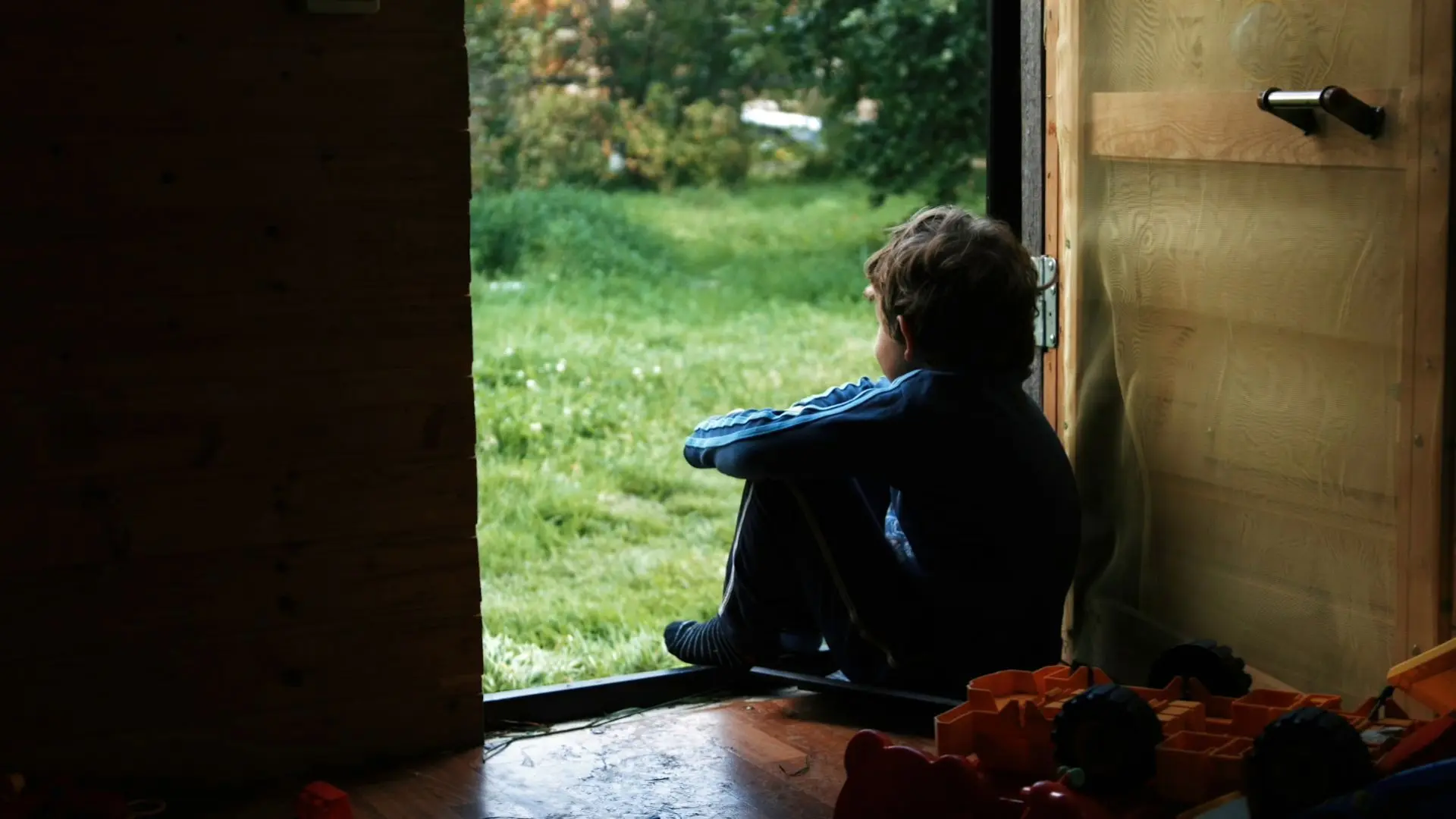Is a single-parent family affecting your child’s growth? Learn the hidden impacts and discover ways to support their development.

Being part of a single-parent family can have a profound impact on a child’s life. Whether it’s the emotional toll of missing a parent, the financial strain of living on one income, or the social challenges of feeling different from their peers, children in single-parent households often face unique hurdles. But it’s not all challenges—there are also strengths and resilience that emerge from these experiences.
As a single parent, you might worry about how these dynamics affect your child’s development. It’s natural to feel overwhelmed at times, but remember, you’re not alone in this journey. In this blog, we’ll explore both the benefits and drawbacks of a single-parent family and, most importantly, offer practical solutions to help your child grow. Let’s go together because every step you take can make a difference.
Section 1: How Does a Single-Parent Family Affect a Child?
Raising a child in a single-parent family comes with a unique set of challenges and rewards. The impact on your child is multifaceted, influencing their emotional well-being, social interactions, and even financial opportunities. Let’s break it down.
Emotional and Psychological Impact on Children in a Single-Parent Family
The emotional and psychological landscape of a child in a single-parent family can be complex. One of the most significant factors is the role of the absent parent. Whether due to divorce, death, or separation, the absence of one parent can leave a void in a child’s life that manifests in various ways.

Loneliness and Insecurity: Children may struggle with feelings of loneliness, particularly if they don’t have a strong support system of friends or extended family. The absence of a parent can lead to insecurities about their self-worth and their relationships with others.
Identity Issues: Children in a single-parent family may grapple with questions about their identity, especially if they have limited contact with the absent parent. This can be particularly challenging during the teenage years when they are forming their sense of self.
Mental Health Concerns: Anxiety, depression, and other mental health issues can arise as children process their emotions. The stress of seeing their parent struggle or feeling different from peers in two-parent households can contribute to these challenges.
Coping Mechanisms and Resilience: On the flip side, many children in a single-parent family develop remarkable resilience. They often learn to cope with adversity at a young age, which can serve them well in adulthood. However, this resilience sometimes comes at the cost of childhood innocence.
The Need for Validation: Children may seek validation and reassurance more frequently, particularly from their single parent. It’s crucial to be emotionally available and supportive to help them navigate their feelings.
Impact of Parental Stress: Witnessing the stress of a single parent can also weigh heavily on a child. They may internalize this stress, leading to feelings of guilt or responsibility for their parent’s well-being.
Understanding these dynamics can help you provide the support your child needs.
Social Development and Relationships in a Single-Parent Family
Social development is another critical area where children in a single-parent family may face challenges. The absence of one parent can influence their ability to form and maintain relationships, both with peers and in future romantic endeavors.

Social Skills and Peer Relationships: Children from single-parent families may struggle with social skills, particularly if their parent has limited time or resources to facilitate social interactions. This can lead to difficulties in making and keeping friends, which are essential for their social development.
School Performance: Academic performance can also be affected. Children may find it hard to concentrate in school if they’re preoccupied with issues at home. Additionally, the lack of parental involvement in school activities due to work or other responsibilities can further isolate them.
Future Relationships and Trust: The dynamics within a single-parent family can shape a child’s views on relationships and trust. They might be wary of forming deep connections, fearing abandonment or betrayal. This can influence their future romantic relationships and friendships.
Parental Involvement: Limited parental involvement in school or extracurricular activities can affect a child’s sense of belonging and achievement. It’s essential to find ways to stay engaged, even if time and resources are scarce.
Support Networks: Establishing a strong support network is crucial for your child’s social development. This might include extended family, community groups, or mentoring programs that can provide additional social interaction and guidance.
Social Identity and Self-Perception: Growing up in a single-parent family can affect a child’s social identity and how they perceive themselves in relation to their peers. They might feel different or excluded, which can impact their self-esteem.
Your role as a single parent is to help your child navigate these social challenges by fostering strong, healthy relationships both within and outside the family.
Financial and Economic Implications of a Single-Parent Family
The financial aspect of raising a child in a single-parent family is often one of the most challenging. The economic implications can ripple through every aspect of a child’s life, from education to opportunities for growth and development.

Economic Challenges: Many single-parent families face significant financial strain. The loss of one income can mean tighter budgets, less access to quality childcare, and fewer opportunities for enrichment activities like sports or music lessons.
Educational Opportunities: Financial constraints can limit a child’s access to educational resources, such as private tutoring, extracurricular activities, or even basic school supplies. This can put them at a disadvantage compared to peers from more affluent two-parent households.
Long-Term Financial Impact: The long-term financial impact on a child’s future can be significant. Limited financial resources can affect their college options, career opportunities, and overall quality of life as they transition into adulthood.
Financial Instability: The stress of financial instability can affect a child’s sense of security. They might become anxious about money or feel pressured to contribute financially from a young age.
Healthcare and Nutrition: Access to healthcare and proper nutrition can also be compromised in a single-parent family, particularly if the family is living on a tight budget. This can have long-lasting impacts on both a child’s physical well-being and emotional health.
Financial Literacy: On the positive side, children in a single-parent family often learn financial literacy at an earlier age. They might become more aware of budgeting, saving, and the value of money, which can be a valuable life skill.
Economic Disparities: It’s important to acknowledge the economic disparities that exist between single-parent families and their two-parent counterparts. Awareness of these disparities can help in seeking out financial assistance programs or scholarships that can bridge the gap.
Navigating the financial challenges of a single-parent family requires careful planning, resourcefulness, and sometimes, seeking out community support.
Section 2: What Are the Advantages?
While there are undeniable challenges, being part of a single-parent family also offers unique advantages. These strengths can be leveraged to create a positive, nurturing environment for your child.

Closer Parent-Child Bond in a Single-Parent Family: One of the most significant advantages of a single-parent family is the potential for a closer, more intimate bond between parent and child.
Quality Time: With only one parent, the time spent together is often more focused and meaningful. You have the opportunity to develop a deep understanding of your child’s needs, fears, and dreams.
Mutual Support: In a single-parent family, there is often a strong sense of mutual support. You and your child learn to rely on each other, creating a bond that is both nurturing and empowering.
Shared Decision-Making: Children in single-parent families often have a greater say in household decisions. This involvement fosters maturity and a sense of responsibility, as they learn to weigh the consequences of their choices.
Empathy and Understanding: The close relationship that often develops in a single-parent family can lead to a deeper sense of empathy and understanding. Your child sees firsthand the challenges you face, and this can instill a sense of compassion and resilience.
Self-Reliance: With fewer resources and time, children may need to take on more responsibilities at home. This can foster independence, teaching them to manage tasks and make decisions on their own.
Household Duties: Contributing to household duties, such as cooking, cleaning, or helping with younger siblings, can instill a strong work ethic and a sense of pride in their contributions.
Leadership Skills: The challenges of a single-parent family can encourage leadership skills in children. They learn to take initiative, solve problems, and make decisions, which are valuable traits as they grow older.
Role Models: By observing your resilience and determination, your child gains a powerful example of how to overcome obstacles and maintain a positive outlook.
Tailored Parenting: Without the need to coordinate with another parent, you can tailor your parenting style to best suit your child’s unique needs and personality. This can lead to a more harmonious and responsive relationship.
Individualized Attention: With only one child or a smaller number of children, you can focus on providing individualized attention. This can help your child feel valued and understood.
Creative Problem-Solving: The challenges of single parenting often require creative problem-solving. This flexibility can lead to innovative approaches to discipline, education, and household management.
Open Communication: In a single-parent family, open communication is key. This dynamic encourages honesty and trust, helping your child feel safe to express their thoughts and emotions.
Section 3: What Are the Disadvantages?
Of course, no family structure is without its drawbacks. A single-parent family can present significant
challenges that may impact both the parent and the child. Here, we’ll explore some of the common disadvantages single-parent family and how they might affect your family dynamic.

Limited Resources: The absence of a second income often means that there is less money available for necessities like housing, food, and education. This can lead to difficult choices and sacrifices that affect the entire family.
Increased Debt: Single parents may find themselves relying on credit or loans to cover expenses, leading to long-term debt that can further strain the family’s finances.
Reduced Access to Opportunities: Financial limitations can reduce access to opportunities that would benefit the child, such as extracurricular activities, tutoring, or family vacations. These experiences are often valuable for a child’s development and social integration.
Pressure on the Parent: The financial burden can place immense pressure on the parent, leading to stress and anxiety that can affect their health and their ability to be fully present for their child.
Parental Burnout: The constant demands of single parenting can lead to burnout, where the parent feels exhausted, overwhelmed, and unable to cope. This can impact their ability to provide the emotional support their child needs.
Loneliness and Isolation: Single parents may experience feelings of loneliness and isolation, particularly if they lack a strong support network. This can lead to depression and a sense of being overwhelmed by the challenges they face.
Guilt and Self-Doubt: Many single parents struggle with feelings of guilt, worrying that they are not providing enough for their child or that their family situation is causing harm. Self-doubt can creep in, making it difficult to feel confident in their parenting choices.
Mental Health Challenges: The emotional strain of single parenting can lead to mental health challenges such as anxiety and depression. It’s important for single parents to seek support and take care of their mental health to ensure they can continue to care for their child effectively.
Juggling Multiple Roles: Single parents must juggle multiple roles, from breadwinner to caregiver to household manager. This can lead to feelings of being stretched too thin, with not enough time to devote to each role effectively.
Impact on Quality Time: With so many responsibilities, finding quality time to spend with your child can be challenging. This can lead to feelings of guilt and worry that your child is missing out on important bonding experiences.
Exhaustion and Fatigue: The constant demands of single parenting can lead to exhaustion and fatigue, which can affect your ability to be patient and present with your child. It’s important to recognize when you need rest and seek support when necessary.
Challenges in Self-Care: Finding time for self-care can be particularly difficult in a single-parent family. However, neglecting self-care can lead to burnout and health issues that ultimately impact your ability to care for your child.
Negative Stereotypes: Single parents may encounter negative stereotypes or assumptions about their parenting abilities or the well-being of their children. These judgments can be hurtful and damaging, leading to feelings of inadequacy or shame.
Social Isolation: The stigma associated with being a single parent can lead to social isolation, as some parents may feel uncomfortable or unwelcome in certain social circles. This can limit opportunities for social interaction and support.
Impact on Children: Children in single-parent families may also face judgment or exclusion from their peers, which can affect their self-esteem and social development. It’s important to help your child develop resilience and a strong sense of self-worth in the face of such challenges.
Work-Life Balance: Achieving a healthy work-life balance is difficult for single parents, who must often work long hours to support their family while also being present for their child. This can lead to stress and feelings of being pulled in too many directions.
Childcare Challenges: Finding reliable and affordable childcare is a common challenge for single parents. Without a second parent to share the load, the responsibility of arranging and paying for childcare falls solely on the single parent.
Career Sacrifices: Single parents may have to make career sacrifices, such as turning down promotions or opportunities for advancement, in order to prioritize their child’s needs. This can limit their career growth and financial stability.
Flexible Work Arrangements: Seeking out flexible work arrangements, such as telecommuting or flexible hours, can help single parents balance their responsibilities. However, not all employers offer these options, which can add to the stress and difficulty of balancing work and parenting.
Section 4: What Can Parents Do?
The challenges of a single-parent family are no small feat, but with the right strategies, it’s possible to create a nurturing and supportive environment for your child. Here are ten solutions that can help you and your child grow.

Build a Strong Support Network: Surround yourself with a supportive community of friends, family, and other single parents. A strong support network can provide emotional support, practical help, and a sense of belonging.
Prioritize Self-Care: Taking care of yourself is essential to being the best parent you can be. Make time for rest, relaxation, and activities that bring you joy. Remember, self-care is not selfish—it’s necessary.
Seek Professional Help When Needed: Don’t hesitate to seek professional help if you or your child are struggling with emotional or psychological challenges. Therapy, counseling, and support groups offer essential resources and guidance.
Create a Stable Routine: A consistent routine can provide a sense of stability and security for your child. Establish regular meal times, bedtimes, and family activities to create a predictable and comforting environment.
Communicate Openly and Honestly: Foster open and honest communication with your child. Encourage them to share their feelings and listen without judgment. This will ensure they are heard and supported.
Set Realistic Expectations: It’s important to set realistic expectations for yourself and your child. Understand that you can’t do everything perfectly, and that’s okay. Focus on giving your best and celebrate small victories.
Embrace Flexibility: While routines are important, flexibility is also key in a single-parent family. Be willing to adapt and adjust your plans as needed to accommodate your child’s needs and your own well-being.
Focus on Quality Time: Even if you’re short on time, focus on making the time you do have with your child meaningful. Engage in activities that you both enjoy and that foster connection and bonding.
Empower Your Child: Encourage your child to take on age-appropriate responsibilities and make decisions. This will help them develop independence, confidence, and a sense of ownership in the family.
Celebrate Your Family’s Unique Strengths: Every family is unique, and that includes single-parent families. Celebrate the strengths and qualities that make your family special, and focus on building a positive and loving home environment.
Conclusion
Raising a child in a single-parent family, from emotional and psychological impacts to financial and social considerations, the journey can be complex. However, with the right mindset, support, and strategies, it’s entirely possible to create a loving, supportive, and thriving environment for your child.
Also, you have the unique opportunity to build a deep, meaningful connection with your child, teach them valuable life skills, and model resilience and strength.
If you found this blog helpful, we encourage you to share your thoughts and experiences in the comments below.
Yes, your family’s story is unique and valuable. Share your stories, pose your questions, and engage with those who truly empathize with your situation.
You may also be interested in : Is the Life of a Single Mom Hard? 20 Ways to Thrive